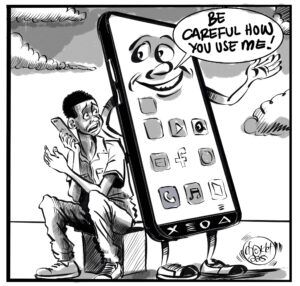Government’s decision to charge mobile phone subscribers a 30 ngwee per day tariff on Internet calls should be reversed because it is misguided, says the Centre for Trade Policy and Development (CTPD).
In a statement issued, Tuesday, CTPD researcher Bright Chizonde stated that the government’s intention to charge consumers the 30 ngwee tariff was misguided because it is based on flawed research findings.
According to Chief Government Spokesperson Dora Siliya, research showed that 80 per cent of citizens are using WhatsApp, Skype and Viber to make phone calls, justifying the move to bill consumers who are on these platforms.
Chizonde, however, argues that government’s assertion is misguided, adding that the correct position is that only 1.3 million citizens can make Internet calls.
“CTPD holds the view that this collective decision was misguided and government must consider reversing the decision. CTPD further considers the cited research and figure to be erroneous and very misleading. According to the 2015 ZICTA ICT Survey Report, about 51 per cent of people aged above 10 years in Zambia are active users of mobile phones. Of this, less than 13.5 per cent of the users have smart-phones,” Chizonde disclosed.
“Furthermore, only 71 per cent of the people with smart phones use the devices to access. Over the Top (OTT) applications like WhatsApp, Viber, Facebook, Skype and Twitter for communication using instant messaging or voice calling. After doing the math, this means only about 1.3 million citizens can make Internet phone calls, which is about 8 per cent of Zambia’s population. The minimal number of people using this service can, therefore, not justify the issuing of and SI seeking to impose a tariff on Internet calling.”
He also rubbished government’s claim that the 30 ngwee tariff would help save jobs in the ICT sector.
“The view that government would save jobs by doing this is simply a misunderstanding of how business and trade operates. Government should maintain its role of providing a conducive environment for business growth, and regulation of the sector should be done through ZICTA in order to protect the interest of the mobile phone users and the economy at large,” Chizonde argued.
“Recently, we have observed an increase in banking innovations on the part of these same telecommunication companies such as the introduction of mobile money services. Such technological advances negatively affect the commercial banks, but the banking sector has not complained. Should the government also introduce a tariff on mobile money services? Should emails also be taxed because they reduce revenues of the postal service?”
He further stated that the tariff will only lead to an increase in the cost of doing business.
“CTPD is of the view that the 30 ngwee tariff will only add to increasing the cost of communication and business in the country relative to its neighbouring countries. This will disadvantage Zambia by increasing the cost of doing business and may result in lower foreign investments in many other sectors. Government cannot start operating like a mobile provider in incentivizing users away from a particular service,” stated Chizonde.
“If government wanted to get a share of what the companies get, an option would have included introducing a tax at source, not targeting an end-user. Government’s role is to provide a conducive environment.”



















